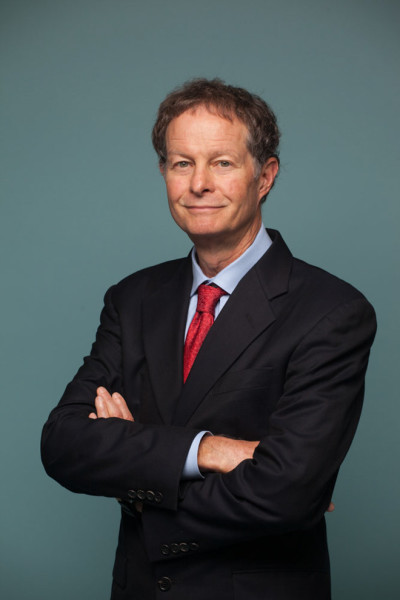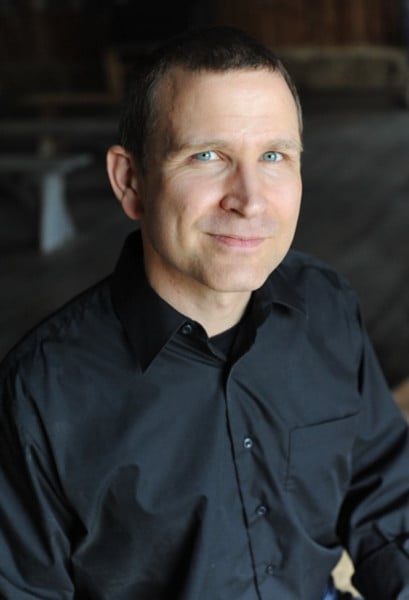John Mackey, the CEO of Whole Foods Market, and Bruce Friedrich, the executive director of The Good Food Institute and founding partner of New Crop Capital, will be participating in a debate on Wednesday at 7 p.m. in Room 290 in the Law School. Mackey and Friedrich will argue that eating meat is not ethical or healthy against Jimmy Zhou ’18 and Jack Boffa ’18, both of whom debate for Stanford. The Daily had a conversation with Mackey and Friedrich before the debate about their interests in the area.
The Stanford Daily (TSD): Why did you want to participate in the debate at Stanford?

John Mackey (JM): I’m very interested in the topic. The ethics, environmental responsibility and health gains from not eating animal foods are very compelling. It is important that more people understand this. I also really like Bruce and this gives me the opportunity to spend a bit of time with him. Finally, I think it will be fun! I love to debate ideas.
Bruce Friedrich (BF): Stanford’s students are the best and the brightest, and they are in an area of the country that is focused on finding technological solutions to global problems. We now know that the meat industry is causing vast pollution, that the inefficiencies of meat production are contributing to global hunger and that meat is linked to cruelty to animals on a scale unrivaled in human history. My hope is that some of Stanford’s students and more of the school’s professors will feel inspired to follow in the footsteps of entrepreneurs like John Mackey and Stanford Professor Pat Brown, using their considerable talents and chosen vocation to get involved in disrupting animal agriculture.
TSD: How did you personally come to your views on the ethics and health considerations of eating meat?
JM: My consciousness about eating meat and other animal foods has been an ongoing journey since I was about 23 and became a vegetarian. In 2003, I read a dozen books or so on how livestock animals are treated and the ethics of being a vegan. I found the arguments compelling and upgraded my diet to vegan.

BF: I read a book called “Diet for a Small Planet,” which points out that it takes at least 9 calories of crops fed to a farm animal to create one calorie of edible meat. That process is vastly inefficient, so it drives up the price of wheat, corn and soy, leading to starvation. It also leads companies to chop down rainforests to grow feed crops, displacing subsistence farmers. It’s an immoral system that harms the global poor the most, and it’s something I decided that I didn’t want to support.
TSD: Can you give us a short preview of the argument you plan on making in the debate?
JM: I’m going to focus on the health aspects. The scientific evidence is very compelling that eating meat and other animal foods greatly increases one’s risk of obesity, diabetes, heart disease and cancer, and lessens one’s longevity. I’m going to present some of this scientific evidence.
BF: I grew up in Oklahoma, and I certainly never thought about the hidden costs of eating meat. But every time we sit down to eat, we make a choice that has consequences. If we’re eating meat, we’re supporting cruelty and suffering for animals, and we’re eating a product that requires nine times the caloric input of eating plants directly. That relationship is bad for the environment, the global poor and animals — and the kicker is, it’s also bad for our health.
TSD: How do you view your role as an advocate for vegetarianism? When and to whom is it appropriate?
JM: I make an important distinction between my personal beliefs and values and Whole Foods Market’s purpose and direction. These are not the same and this often confuses many people who believe Whole Foods is my own company and that I can do whatever I want. This is simply not the case. As a public company, I don’t own Whole Foods and my personal beliefs are just that — my personal beliefs. I believe I’m free to advocate for my personal beliefs regarding veganism and healthy eating, but not free to try to force Whole Foods to move in a direction that is against its best interests. I’m currently writing a book titled “The Whole Foods Diet.” It will be published in 2017 and my personal healthy eating views will then reach a much larger audience.
BF: Professionally, I now focus principally on making vegetarian eating easier. We’re trying to create a market segment of plant-based and cultured alternatives to animal products, so that it’s simply cheaper, tastier and more convenient for people to make choices that better align with their values. A lot of my time is focused on trying to convince governments, corporations and venture capital firms to support these alternatives as an excellent way of addressing problems like climate change and global hunger.
TSD: What tips do you have for someone who may want to try a meat-free diet but isn’t sure they have the willpower?
JM: It really has very little to do with willpower. We learn to enjoy whatever foods we accustom ourselves to eating. Once we eat a food 10 to 15 times, we will come to enjoy it. As a kid, I ate zero green vegetables. However, as an adult, I taught myself to enjoy all vegetables by simply eating them in small quantities and over time, I came to love them. It is all about training our taste buds. Just like any other skill we acquire, we must practice. To be a skillful and healthy eater, we must practice until we master it. There is no other single thing we can do that would improve our health more than to become a skillful eater — weaning ourselves off of animal foods and training ourselves to eat and enjoy fruits, veggies, beans, whole grains, nuts and seeds.
BF: I grew up as a hardcore meat-eater in Oklahoma; if I can do it, absolutely anyone can. Try it for 21 days and see how you do — I’ll bet you’ll love it and never turn back. For inspiration, you might want to check out Mercy For Animals’ veg guide, at www.ChooseVeg.com. For someone who wants to move incrementally, please consider that the smallest and worst-treated animals are chickens and fish — so start by eliminating those animals, plus eggs, from your diet. But most critically, everyone should educate themselves about these issues and then get involved. Don’t just make this about personal choices; seriously consider dedicating your life to changing the world for the better.
This interview has been condensed and lightly edited.
Contact Ada Throckmorton at adastat ‘at’ stanford.edu.